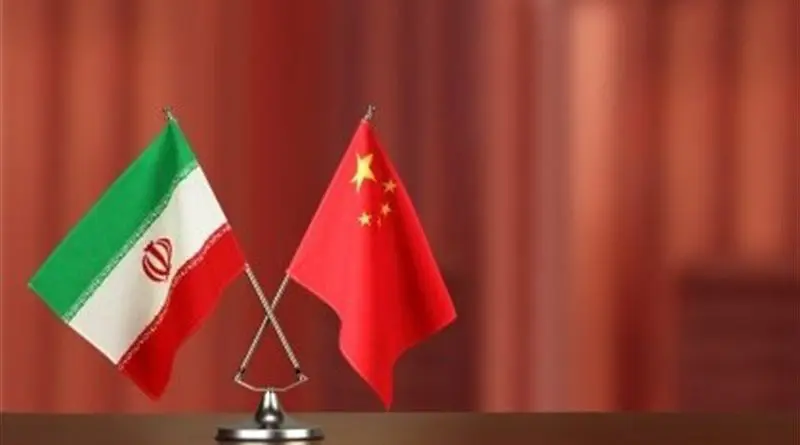Washington Should Tackle The Sino-Iranian Relationship Challenge Right Away – OpEd
A couple of weeks ago, Chinese Foreign Minister Wang Yi met with his Iranian counterpart Hossein Amir Abdollahian and declared that they will begin implementing their comprehensive strategic partnership. China and Iran’s growing security cooperation poses a serious threat to US and Israeli security interests. To address these, Washington must take a number of immediate steps.
The 25-year strategic agreement, inked last year by Beijing and Tehran, provides significant benefits for two US rivals unified in their resistance to the US and the rule of law. China expands its presence in the Middle East, weakens the US, and gets access to Iranian oil and other critical commodities by establishing relations with Iran. Iran, on the other hand, will benefit from billions of dollars in Chinese energy and infrastructure investment, undermining the effectiveness of US sanctions.
The economic and diplomatic relations between Beijing and Tehran are at the center of their partnership. Last September, the Shanghai Cooperation Organization, which is led by China and Russia, unanimously voted to admit Iran as a full member. However, ignoring the security implications of the Sino-Iranian relationship would be a mistake.
Military collaboration between China and Iran isn’t a speculative or potential issue. To begin with, China’s purchases of Iran’s oil and willingness to invest in Iran can have serious security implications, which will exacerbate with time. First, Chinese investment will give Iran economic stimulation and money. If history repeats itself, Tehran will use a large portion of the additional revenue to rebuild its economy as well as its missile and drone arsenal.
More broadly, more Chinese investment will diminish the impact of US sanctions against Iran. This will exacerbate Iran’s obstinacy in any talks over its nuclear program.
Furthermore, while the full contents of the strategic cooperation agreement are still unknown, a leaked copy of the deal labeled “final version” called for joint military training, exercises, weapons development, and intelligence sharing between China and Iran. That should make the US and Israel sit up and pay attention.
Increased military cooperation between China and Iran might help Iran’s military capability grow significantly over time. Iran’s military would be better equipped to prevent or defend against a nuclear-related strike if they received stronger anti-access/area-denial weaponry from China.
A couple of weeks ago, Iran, China, and Russia held their third combined military drill in the Indian Ocean. In December 2019 and September 2020, they staged two more joint naval drills. According to a study by the US-China Economic and Security Review Commission, at least one of the ballistic missiles Iran purported to have used in the 2020 attack on US soldiers at Iraq’s Ain al-Asad Air Base was “very likely” built with Chinese ballistic missile technology.
It’s no surprise that the specifics of Sino-Iranian security collaboration remain a mystery. Beijing has every reason to underestimate Tehran’s increased collaboration. Helping the Iranian military is unlikely to gain Beijing any friends in Riyadh or Abu Dhabi, where the Chinese Communist Party is anxious to strengthen connections with Gulf Arab governments.
This balancing act explains why Saudi Arabia’s, Kuwait’s, Oman’s, and Bahrain’s foreign ministers, as well as the Gulf Cooperation Council’s secretary-general, visited China a few weeks ago. Beijing is aiming to strengthen ties with both Iran and the Gulf nations at the same time. As a result, China will need to frame its growing bilateral security cooperation with Iran in a way that does not upset lawmakers on the other side of the Gulf.
Washington should endeavor to reduce the threats of China-Iran cooperation right away.
To do so, the first step for Washington is to understand that providing Gulf Arab partners with more advanced weapons will only incentivize Iran (and Turkey) to turn to China and Russia for weapons. That would empower the United States’ two main adversaries and reduce U.S. leverage in the Middle East. This dynamic has already played out with respect to Egypt. When the United States provided aircraft, tanks, and missiles around 2013 to Cairo’s regional rivals, it turned to Moscow and Paris for warplanes and Beijing for drones. The same dynamic is starting to play out with Iran and Turkey, and China is eager to take advantage.
Second, Washington should return to JCPOA and push the Iranian regime to do so as well. Otherwise, the situation in the Middle East will take a turn for worse and the too complicated to manage. The United States’ main concern is the great power competition and the Indo-Pacific region, not the forever wars in the Middle East.
Third, Congress should insist on full, yearly, written, and declassified reports on Sino-Iranian military training, exercises, weapons development, and intelligence sharing from the Pentagon and the intelligence community. Statutory obligations to report on the connection already exist, but they may be strengthened and enforced more effectively. To help inform choices and avoid strategic surprises, the US should share intelligence on Sino-Iranian military cooperation with Israel ahead of time.
The “comprehensive strategic partnership” between China and Iran, as well as Iran’s admission to the Shanghai Cooperation Organization and the Iranian foreign minister’s visit to China, demonstrate three things: a growing convergence between Beijing and Tehran, Beijing’s growing political sway around the world, and the reality that the nuclear talks stalemate must be broken as soon as possible.
*Sarah Neumann is a professor of political science at teaches political science courses at Universities in Germany.

